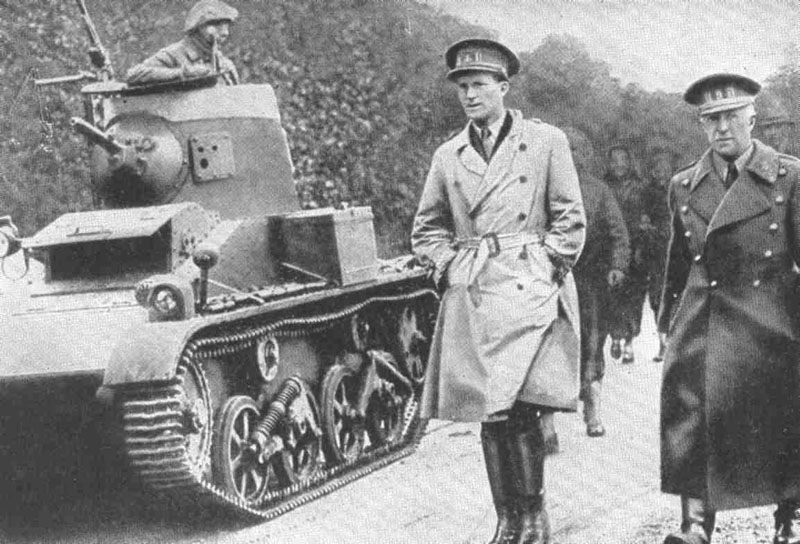|
Belgium Surrenders at Her King's Order
With stunning force came the news on 28 May 1940, of King Leopold's capitulation to the Germans. Not yet can the full story of the treacherous surrender be told, but here, we recount the events which led up to it and venture. something of a way of explanation.
When Belgium was invaded in the early hours of 10 May 1940 and army of some 400,000 man's the frontier defences and prepared to put up a stern resistance to the invader. Compared with their predecessors of 1914, they were both more numerous and better equipped, but failure to destroy a bridge at Maastricht opened an avenue to the German forces, which he was quick to seize. Within a few hours, the Belgians were falling back on both sides of the Meuse, until on 14 May 1940 their right flank was strongly supported by the BEFand by divisions of the French first army rushed to their support from the neighbourhood of Sedan. Shortly afterwards, as a direct result of the succour so instantly and willingly afforded, a great bulge developed in the French line and the allies in the North were again compelled to retreat. On 17 May 1940 the Germans entered Brussels in triumph for the second time in 26 years, and on the following day, Antwerp, too, fell. By this time, the Belgian army had been reduced to a fighting strength of no more than 200,000 men, the line about 80 miles in length, ran from Heyst on the Belgian coast, just north of Zeebrugge to near Menin. This situation was serious, for few of their 300 aeroplanes were left many of their guns and much of their transport have been put out of action because the German aircraft had killed the horses, and few of their light armoured vehicles were serviceable. Food and munitions was still to be had troops were dog tired, and they had no reserves. Nevertheless, observers reported that the Belgians of 1940, were as brave as those of 1914, and at Liege and Namur some of the forts held out despite encirclement for days by the German hordes. Such was the position when on 25 May 1940 King Leopold, Commander-In-Chief of the Belgian army, seems to have decided on capitulation. Maybe he was appalled by the slaughter resulting from the indiscriminate bombing by the German aeroplanes, or he may have taken a hopeless view of the Allied military position in general and off the Belgian, in particular. Whatever the reasons that actuated him he was firmly resolved. Early on the morning of 25 May 1940, M Pierlot, the Belgian premier, and M Spaak, Foreign Minister, and to of their colleagues had a last interview with Leopold at the Château Wynendael, near Thourout.
In view of the danger of the Kings capture or enforced capitulation, they asked the king to hand over the command of the army to a general of their own nomination, and that he himself to France. Leopold blankly refused.
Leopold Hoists the White Flag
That same evening (so it is said) M Reynaud told M Pierlot that he had indubitable evidence that King Leopold intended to betray them, the unhappy Belgium replied that what ever happened. The Belgium government would maintain its independence and continue the struggle side-by-side with its allies. But in Belgium King Leopold had given the word for capitulation. An order was signed, in his name. It was reported that General Michiel's, his chief of staff, had refused to countersign it forbidding all movements of Belgian troops and the destruction of their arms and supplies, and instructing the men to line up along the side of the roads and indicate their positions by displaying white flags. Worse still, the German troops were to be allowed to pass through their ranks unmolested right up to the sea.
The Royal command was obeyed, the Belgian troops laid down their arms at 4 a.m. on 28 May 1940, and so the left flank of the allies was exposed to German forces.
On the morrow of the capitulation, the world rang with denunciations of Leopold's treachery. Comment and criticism which had hitherto perforce been kept underground, were now given full vent, and many indications of the Kings anti-French, if not pro-German, attitude were revealed. It was recalled how in 1936 he repudiated the Locarno Alliance, and how marked had been the influence of his Bavarian born mother. One fact at least was known, and that was sufficiently damnable, that the ruler who had invited the British and the French to come to the assistance of himself and his stricken people had now come to terms with the enemy without so much as giving his allies even a few hours warning of what he intended. So there descended on the French and British armies and fury of the battle, of the Belgium army. The bitterness of defeat, and on the Belgian people. The grim servitude, that Nazi rule brings in its train, while on Leopold. The curtain descended as he withdrew behind the gates of the Castle so considerately allotted him by the triumphant Führer.
